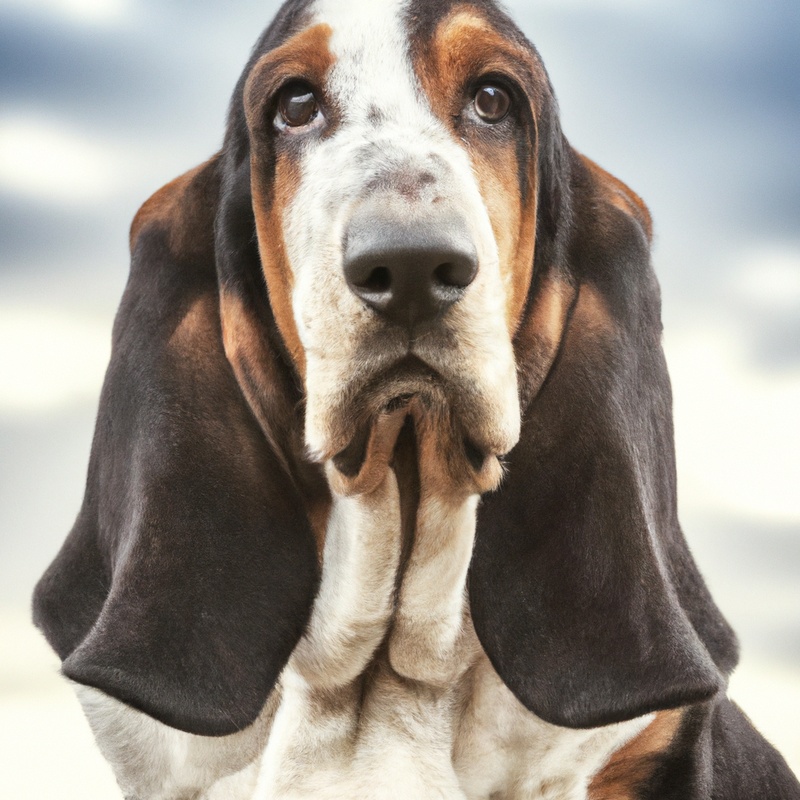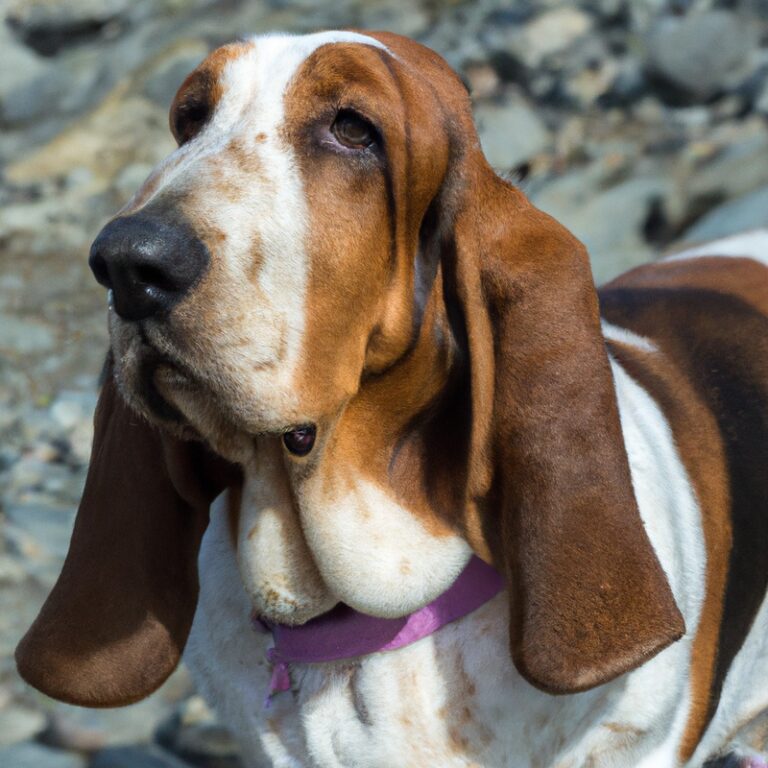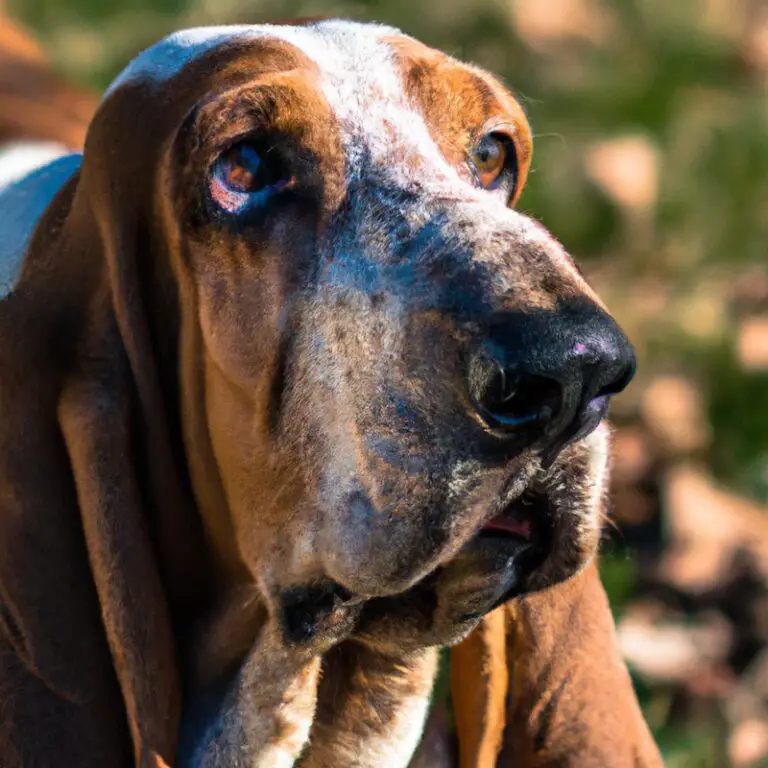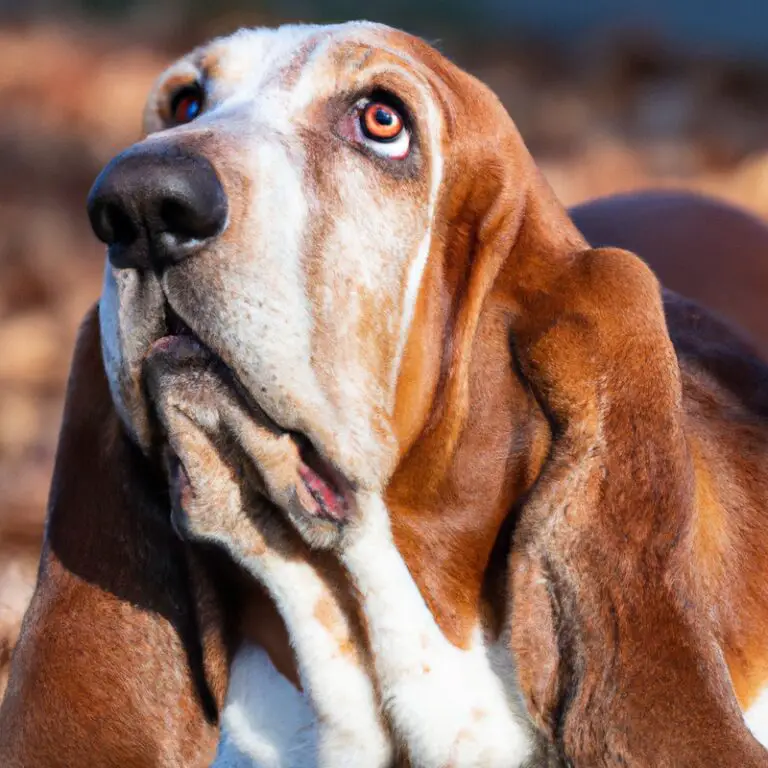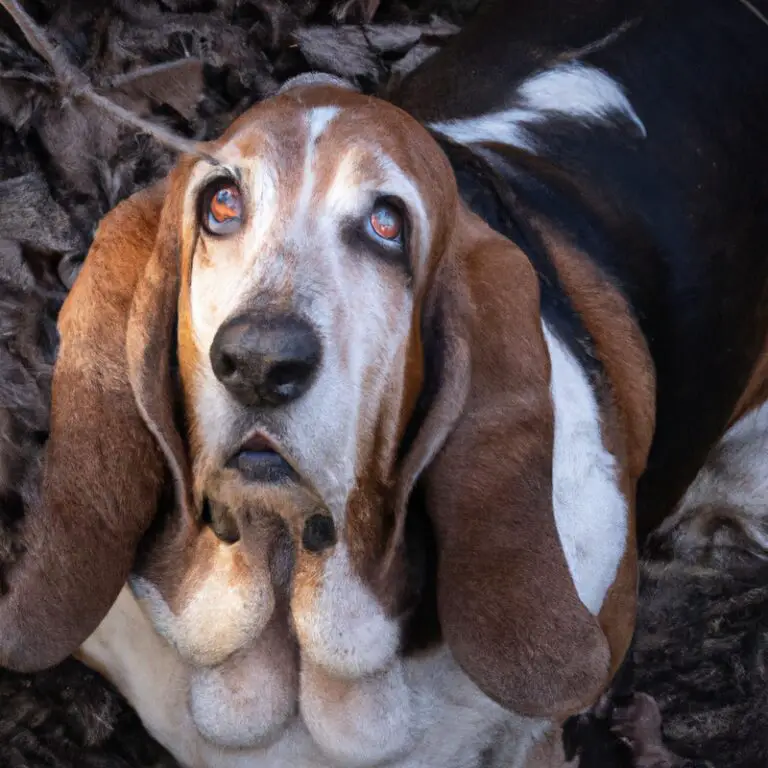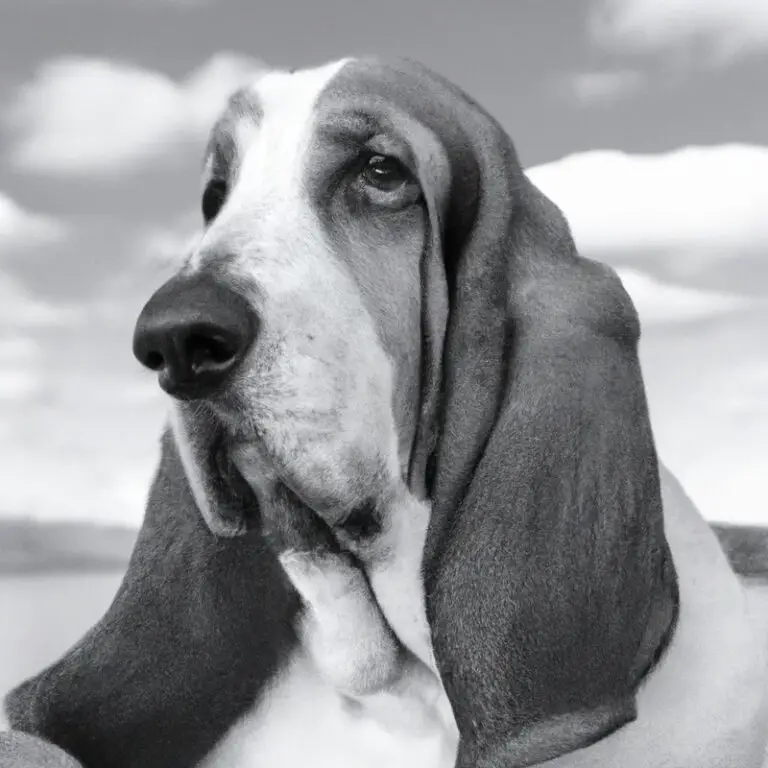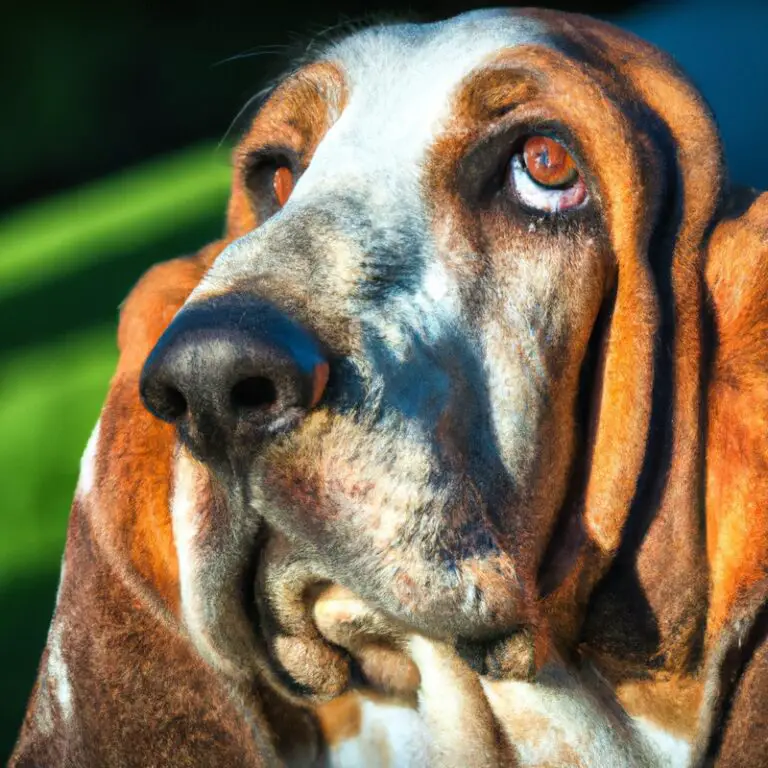Are Basset Hounds Good Guard Dogs?
Key Takeaways:
- Basset Hounds are not typically good guard dogs due to their friendly and non-aggressive nature.
- Their laid-back temperament and lack of protective instincts make them more suitable as companions rather than guard dogs.
- Basset Hounds may still bark at unfamiliar noises or strangers, but they usually do not pose a significant threat or provide reliable security.
- If you’re looking for a guard dog, it’s better to consider breeds known for their protective abilities rather than choosing a Basset Hound.
Are you in the market for a guard dog that will not only protect your home but also shower you with love and affection?
A breed that combines loyalty, intelligence, and a unique appearance?
Look no further than the Basset Hound.
These charming, low-slung dogs may not be your typical guard dog, but they have a surprising set of skills that make them an intriguing option for home security.
In this article, I’ll dive into the traits and history of Basset Hounds, evaluate their potential as guard dogs, and explore alternative roles they excel in.
Stick around to discover if the Basset Hound is the right choice for your personal security needs!
| Criteria | Basset Hounds |
|---|---|
| Size | Medium |
| Aggressiveness | Low |
| Protectiveness | Low |
| Alertness | High |
| Vocalization | High |
| Temperament | Calm, friendly |
Overview of Basset Hounds as a Breed
Appearance and Temperament of Basset Hounds
Basset Hounds have distinct appearances with their long bodies, short legs, and droopy ears.
They have a sturdy build and can weigh between 40-65 pounds.
Their coats are short and dense with various colors and patterns.
As for their temperament, Basset Hounds are known for being laid-back, friendly, and sociable.
They generally get along well with children and other pets.
However, they can be stubborn at times, which may affect their obedience training.
Basset Hounds also have a strong sense of smell and love to follow scents, so it’s important to keep them secure in outdoor areas.
History and Origin of Basset Hounds
Basset Hounds have a rich history that dates back to 6th century France.
They were originally bred for hunting purposes, specifically for tracking small game like rabbits and hares.
The name “basset” means “low-set” in French, which is a fitting description as these dogs have short legs and a long body.
They were prized for their excellent scenting abilities and their slow, methodical approach to tracking.
Basset Hounds became popular in England during the 19th century and eventually made their way to the United States.
Today, they are beloved for their friendly nature, droopy ears, and distinctive howl.
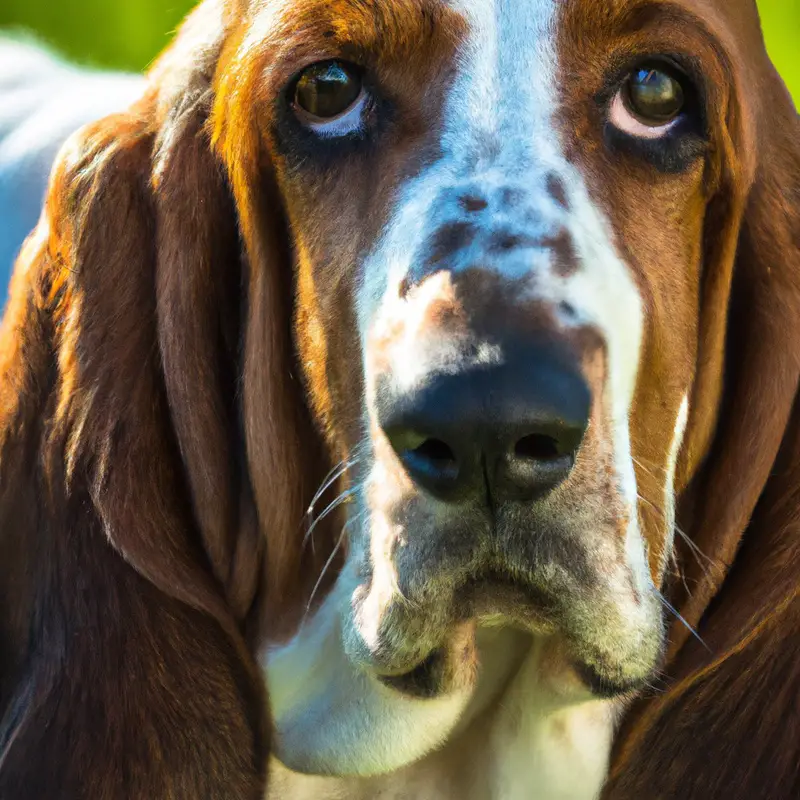
Common Traits and Characteristics of Basset Hounds
Basset Hounds are known for their distinctive appearance, with long ears and droopy eyes. They have a calm and gentle temperament, making them great companions.
Bassets are generally friendly and good-natured, getting along well with people and other pets.
They are also known for their strong sense of smell and tracking ability. Bassets can be stubborn at times, but they are generally easygoing and adaptable.
However, they do have a tendency to become overweight, so regular exercise and a balanced diet are important for their overall health.
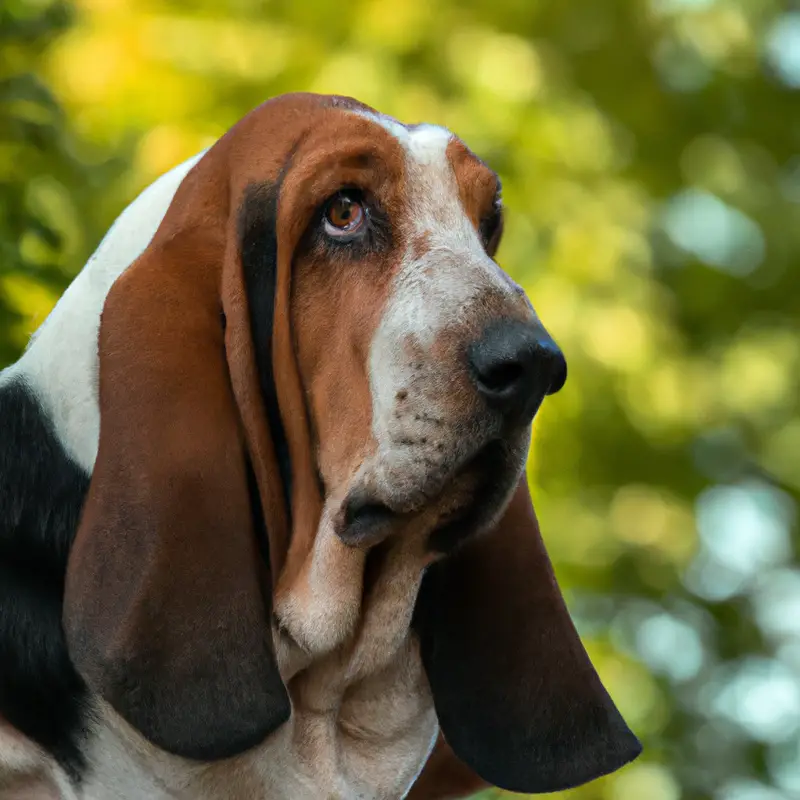
Understanding Guard Dogs
Roles and Characteristics of Guard Dogs
Guard dogs play a vital role in protecting people and property. They possess several key characteristics that make them well-suited for this job.
- Alertness: Guard dogs are naturally alert and have keen senses, allowing them to quickly recognize potential threats.
- Loyalty: These dogs are incredibly loyal to their owners and will fiercely protect them and their territory.
- Courage: Guard dogs have a strong sense of bravery and will confront intruders without hesitation.
- Intelligence: These dogs are highly intelligent and can be easily trained to perform specific tasks and follow commands.
- Physical strength: Many guard dog breeds possess a strong physical presence, which can deter potential intruders.
- Aggression: Guard dogs have a controlled level of aggression, which allows them to respond appropriately to threats.
- Socialization: Properly socialized guard dogs can differentiate between friend and foe, enabling them to protect their family while still being friendly with others.
While these are general characteristics, it’s important to remember that each dog is unique, and individual temperaments may vary within breeds.
Breeds commonly used as Guard Dogs
Breeds commonly used as guard dogs include German Shepherds, Rottweilers, Doberman Pinschers, Bullmastiffs, and Boxers. These breeds are known for their strength, intelligence, and protective instincts, making them well-suited for guarding and protecting homes and properties.
They have a natural ability to assess threats and act accordingly, and their physical presence alone can deter potential intruders.
Additionally, these breeds can be trained to follow commands and are highly loyal to their owners.
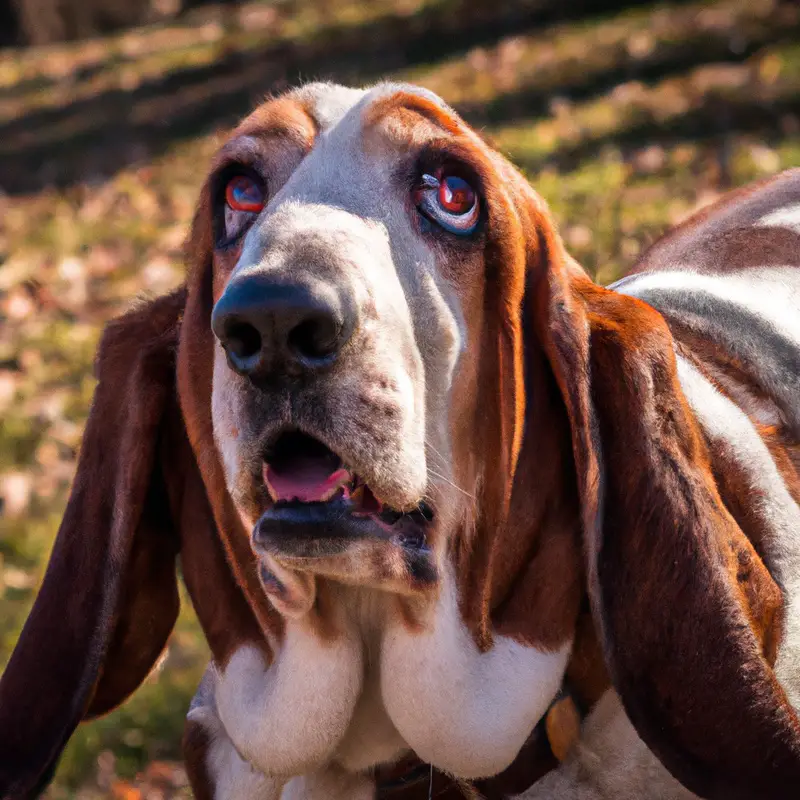
Training and Socialization of Guard Dogs
Training and socialization are vital for the development of effective guard dogs. Consistent and positive reinforcement methods should be used to teach obedience, response to commands, and proper behavior.
Socializing guard dogs from an early age exposes them to different environments and people, ensuring they remain calm and composed in various situations.
Regular training sessions and exposure to real-life scenarios help build confidence and sharpen their protective instincts. It is important to work with a professional trainer who specializes in guard dog training to ensure proper techniques are utilized.
Evaluating Basset Hounds as Guard Dogs
Evaluating Basset Hound’s Physical Abilities for Guarding
Basset Hounds are not known for their physical abilities as guard dogs. They have a low exercise capacity, which affects their stamina and agility.
They are also not built for speed or strength, with their short legs and compact bodies.
Additionally, their floppy ears and loose skin can hinder their ability to hear and maneuver. While they may have a loud bark, it does not necessarily make them effective guard dogs.
Their strengths lie in their scenting abilities and affectionate nature, rather than physical prowess.
Assessing Basset Hound’s Temperament for Guarding Purposes
The Basset Hound’s temperament does not make it well-suited for guard dog duties. These dogs are typically friendly, easygoing, and not inclined to be aggressive.
They are more likely to greet intruders with a wagging tail rather than guard against them.
Additionally, Basset Hounds are known for their laid-back nature and can be easily distracted or not motivated to perform guarding tasks. While they may alert you to the presence of strangers, they are not typically protective or territorial in nature.
Analyzing Basset Hound’s Alertness And Protective Instincts
Basset Hounds are known for their laid-back nature rather than their alertness and protective instincts. While they may bark to alert their owners, they are generally not aggressive or protective in the same way as some other breeds.
Bassets are more likely to greet strangers with a wagging tail than to act as a deterrent.
However, every dog is unique, and there may be some Basset Hounds that exhibit a stronger protective instinct. Understanding an individual dog’s temperament and personality is essential in assessing its suitability as a guard dog.
Challenges and Limitations
Basset Hound’s Laid-Back Personality and its Impact on Guarding
Basset Hounds are known for their laid-back, easygoing personalities, which can have an impact on their ability to be effective guard dogs. Their gentle and friendly nature makes them more inclined to be welcoming to strangers rather than protective.
Additionally, their low energy level and tendency to be more focused on tracking scents rather than potential threats may make them less suited for guarding duties.
While individual Basset Hounds may exhibit some guarding instincts, as a breed, they are generally not considered to be ideal guard dogs.
Basset Hound’s Limited Size and its Effectiveness as a Guard Dog
One challenge when it comes to using Basset Hounds as guard dogs is their limited size.
Basset Hounds are not large or intimidating dogs, which can impact their effectiveness as protectors.
Due to their small stature, Basset Hounds may not possess the physical strength or size needed to ward off potential threats.
Their smaller size also means they may not be as intimidating to intruders as larger breeds.
Additionally, their laid-back nature and friendly demeanor may not lend well to the role of a guard dog.
Basset Hound’s Gentle Nature and its Potential Drawbacks in Guarding
Basset Hounds have a gentle and laid-back nature, which can be a drawback when it comes to guarding.
They are not known for their aggression or protective instincts, making them unsuitable for guarding purposes.
Their friendly and sociable temperament may make them easily approachable by strangers, rather than serving as a deterrent.
Additionally, their size and physical abilities are not ideal for intimidating or apprehending intruders.
Overall, while Basset Hounds make excellent family pets, they are not recommended as guard dogs.
Alternative Roles for Basset Hounds
Basset Hounds as Family Pets and Companions
Basset Hounds can make wonderful family pets and companions. They are known for their affectionate and gentle nature, making them excellent with children and other pets.
Bassets are also quite adaptable and can adjust well to various living situations, whether it’s a small apartment or a larger home with a backyard.
They love being part of the family and enjoy spending quality time with their human companions. With their loyalty and laid-back personality, Basset Hounds make great additions to any loving household.
Basset Hounds for Therapy Work and Emotional Support
Basset Hounds can excel in therapy work and provide emotional support.
Their kind and gentle nature makes them ideal for interacting with patients and individuals in need.
Bassets have a calm demeanor and are known to be empathetic and intuitive.
Their low energy levels and desire to be close to their humans make them perfect companions for emotional support.
They can provide comfort and alleviate stress or anxiety.
Their adorable appearance and soothing presence often bring smiles and joy to those they interact with.
Basset Hounds’ Skills in Tracking and Hunting
Basset Hounds possess natural tracking and hunting skills due to their keen sense of smell and determination. Their low stature and droopy ears help them catch the scent of prey on the ground.
With their strong nose and persistence, they excel in tracking scents over long distances.
Basset Hounds are particularly skilled in tracking small game like rabbits and squirrels. Their abilities make them suitable for various tracking and hunting tasks, including search and rescue operations or participating in scent detection activities.
Final Verdict
While Basset Hounds may have some individual traits that could be beneficial for guarding, they are generally not considered ideal guard dogs. Their laid-back personality, limited size, and gentle nature make them better suited for other roles such as family pets, therapy work, or tracking and hunting.
When considering a guard dog, it is important to evaluate their physical abilities, temperament, and protective instincts.
Ultimately, the decision to choose a guard dog should be based on the specific needs and requirements of your home security.

